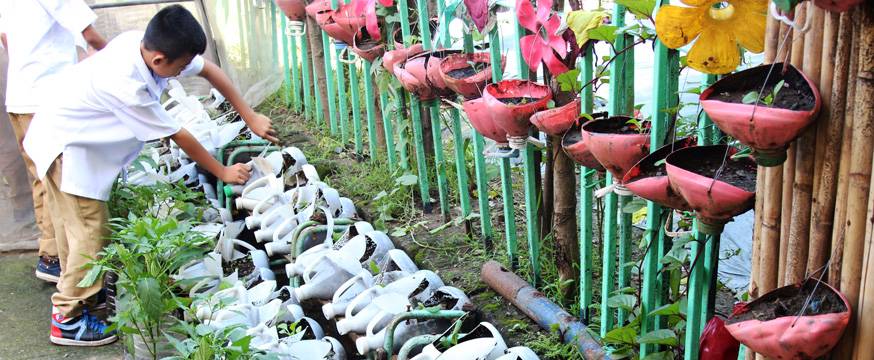
Global citizens in primary schools
Research 22 Sep 2015 6 minute readIn the education sector, schools, universities and governments are prioritising global citizenship education to address the learning needs of increasingly globalised populations. Rachel Parker explains why.
Global citizens in primary schools
Globalisation has affected domestic economies and the dynamics of international relations, but one further effect is the growing importance of global citizenship, whereby people view themselves as not only belonging to their own community, but also to groups, causes or efforts that transcend national borders.
According to the United Nations, education for literacy and numeracy is not enough; we also need to define and track the knowledge, values and skills required for effective world citizenship, with a view to fostering in children an understanding of how the world works and how to change it for the better. For this reason, the United Nations Children’s Fund (UNICEF) included global citizenship as the third domain in the inaugural South East Asia Primary Learning Metric (SEA-PLM). This is also the first time global citizenship has been identified as an assessment domain in a multi-country study.
ACER and the Southeast Asian Ministers of Education Organisation through its Regional Centre for Educational Innovation and Technology are working with the UNICEF East Asia and Pacific Regional Office to implement the SEA-PLM pilot assessment of literacy, numeracy and global citizenship skills in four countries of the Association of Southeast Asian Nations (ASEAN): Brunei Darussalam, Cambodia, Lao People’s Democratic Republic and Myanmar (Burma). Culturally relevant assessment tools are being designed to target primary students in Year 5.
What is a global citizen?
The idea of interconnectedness, that local actions may have global consequences and vice versa, is at the heart of global citizenship. According to Oxfam’s Education for Global Citizenship: A guide for schools, ‘A global citizen is someone who is aware of the wider world and has a sense of their own role as a world citizen; respects and values diversity; has an understanding of how the world works, is outraged by social injustice; participates in the community at a range of levels, from the local to the global; is willing to act to make the world a more equitable and sustainable place; and takes responsibility for their actions.’
For the SEA-PLM pilot assessment, ACER has reviewed the literature in order to define global citizenship in a way that addresses core ASEAN values as articulated in its Charter. Key concepts within ACER’s definition for SEA-PLM are interconnectedness; valuing human life and the natural world; supporting sustainability, peace, and equality; and acting and relating with an understanding of interconnectedness.
How can global citizenship skills be assessed?
Having established this definition, ACER has built an assessment framework of core competencies appropriate for the participating Year 5 students.
The literature on global citizenship education generally organises competencies around the following key outcomes:
- the cognitive aspects gained through learning about global structures, systems and issues;
- the socio-emotional aspects relating to the attitudes and values underpinning the appreciation of diversity, equality and respect for human rights; and
- the behavioural aspects that link with engaging in activities that create positive change.
The ACER team developed three content sub-domains for each of these outcome areas, addressing global citizenship systems, issues and dynamics, global citizenship identities, and global citizenship engagement.
Questionnaire items have been developed that align with these content sub-domains and the anticipated ability levels of the student cohort.
Global citizenship education and civics and citizenship
While some critics of global citizenship education describe it merely as a rebranding of civic and citizenship education, there is a difference: in some countries civic and citizenship education focuses entirely on domestic systems, structures, civic rights, responsibilities and duties. In global citizenship education, competencies such as intercultural understanding, knowledge of global systems and structures, and the skills to engage as a global citizen are by definition central and embedded in each outcome and sub-domain.
Further work is still to be done to better define and apply global citizenship education concepts in diverse contexts, yet there is no doubt that gaining a better understanding of children’s knowledge about how the world works and how to change it for the better is legitimately important work.
